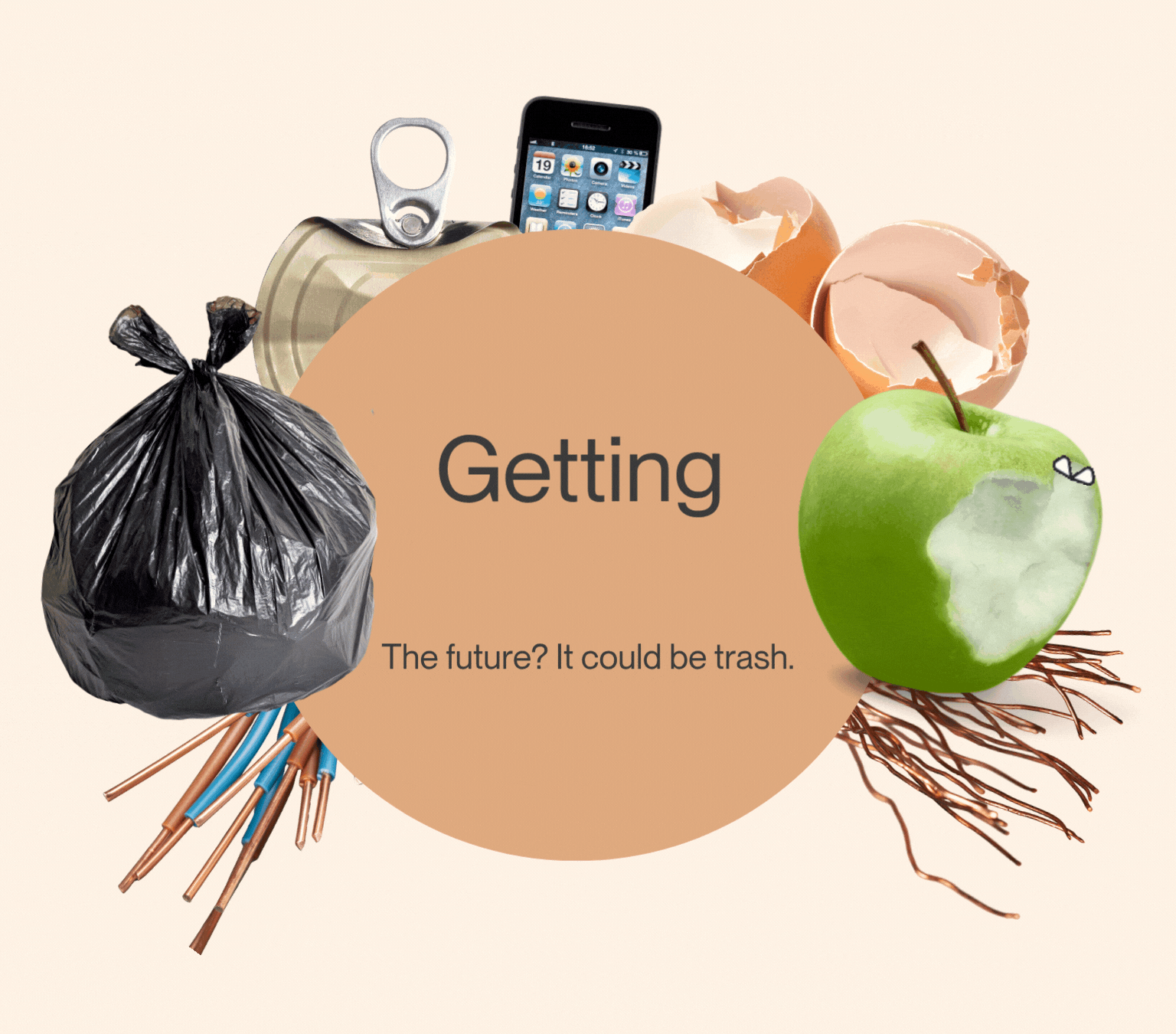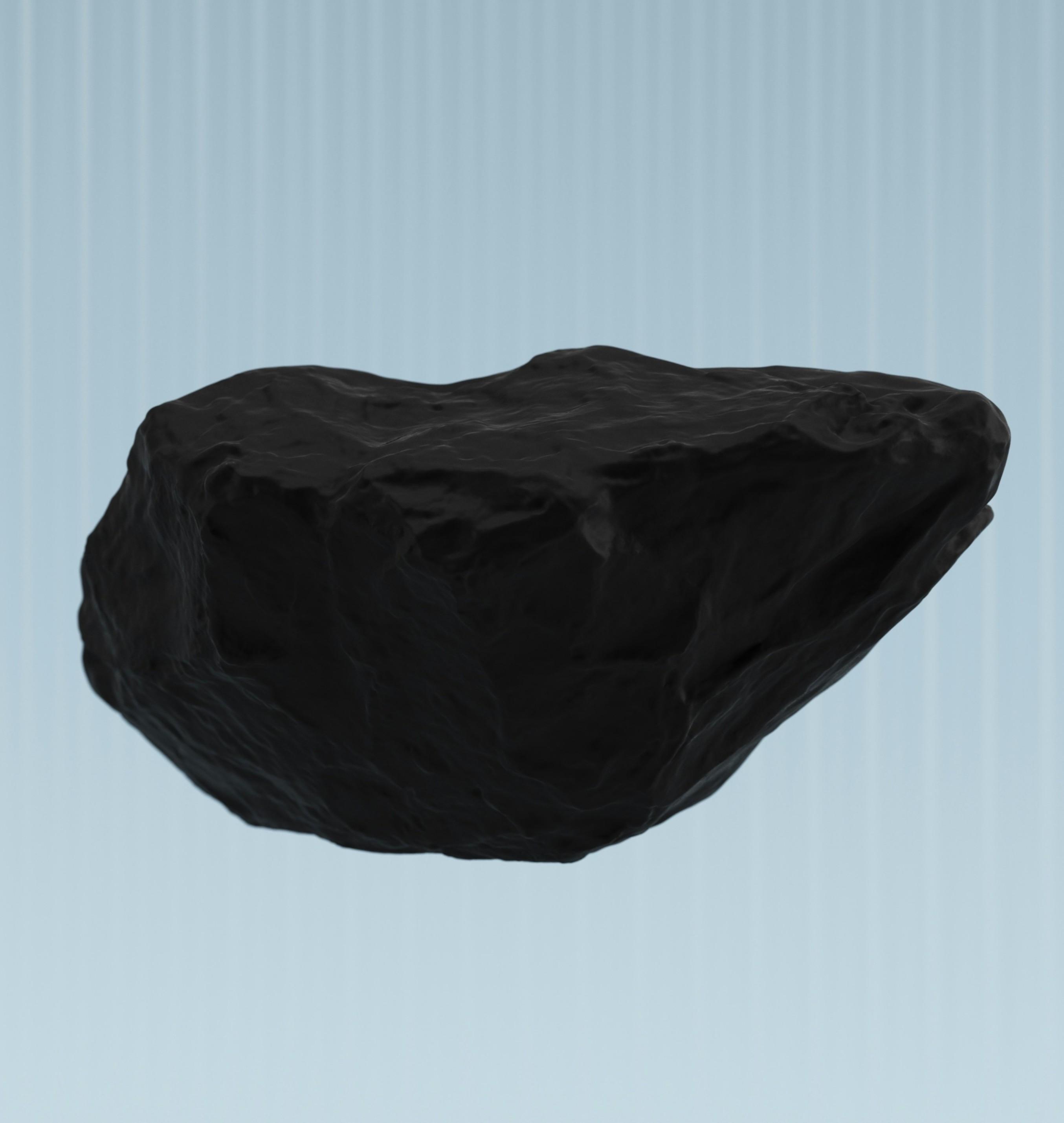Insights
Getting wasted
The future? It could be trash.

The economy of consumerism has a problem: waste.
The linear model of "take-make-dispose" is fundamentally unsustainable. This is a central challenge at the heart of investing because many of the companies in the ‘investible universe’ are tied to a growth model that rewards increased production.
Arguably, many of the biggest drivers of waste are psychological - like believing that buying something new is better than choosing something used or reconditioned. Or feeling the pull to have the latest model, the newest trend, or the convenience of a one-click purchase delivered straight to your door.
Our struggle to define what ‘enough’ looks like only makes it harder. It’s a swirl of instant gratification, status anxiety, and the glorification of ‘easy’. And businesses are more than happy to feed that cycle, because it leads to increased sales.
To get a sense of scale, the Gross World Product (the combined market value of all goods and services produced across every country) is $88 trillion USD a year. By 2050, that figure is projected to reach $218 trillion USD.
According to website The World Counts, there are currently 4.9 billion consumers and counting. Yet, the site estimates humanity already uses the resources of 1.73 Earths (as at time of writing). and in case you didn’t realise, we’ve only got the one Earth. Singular.
When we think about mass consumption, we must consider the various benefits it’s created: financial stability through jobs, social connectivity through technology, light where there was darkness (literally), entertainment and democratisation of culture and commentary.
On the flip side, what it’s cost arguably outweighs a lot of the (unevenly distributed) benefits. We’re talking economic inequality, wars over non-renewable resources (such as ‘Oil Wars’) tensions over production (think China and America’s ‘custody battle’ over Taiwan’s semiconductors, pollution, ecosystem loss and a staggering amount of waste.
In 2024, Pathfinder attended a Mindful Money conference where a panel discussed the energy transition and growing strain on our infrastructure.
One panellist quietly suggested that reducing consumption could be part of the solution, a comment almost whispered because the idea is so often dismissed. But why?
It’s not a new concept; indigenous communities have lived this way successfully for generations, long before sustainability frameworks gave it a label.
In Te Ao Māori, consumption restraint has long been practiced through kaitiakitanga (guardianship), which invites a respectful, balanced use of resources through practices like rāhui (temporary bans on harvest) to help ecosystems recover and future generations to thrive. In the simplest way, it’s taking only what is needed to allow the environment to replenish itself.
In this worldview (and many other indigenous worldviews), consumption isn’t simply about individual choice and financial impact, but about the health of resource givers and resource takers. When the resources are over-used, collective well-being suffers.
While this is still practiced in the present day, a more widespread example was the COVID lockdowns. The impact of this enforced period of confinement had some positive impacts on the environment (including reduced air, water and noise pollution). But conversely, increased consumption mitigated a lot of this by rearing its head with people buying more online, a decrease in waste recycling and increase in energy consumption due to vaccine manufacturing.
How does this relate to investing?
As investors we profit off consumption, it would be untrue to pretend we don’t.
Examples of companies Pathfinder invests in that rely on a high volume of sales include Apple, Woolworths, Costco, Amazon* and Target. These companies comply with our Ethical Investment Policy because we don’t exclude mass consumption, but we also direct money toward companies that regenerate our world rather than deplete it.
Because one person's waste is another’s opportunity, quite literally. Ethical investors can play a part by backing companies that don’t just clean up the mess but rethink how we manage and reuse what already exists.
Let’s look at some of the companies we invest in, like Cleanaway. From e-waste recycling to organic composting, hazardous waste and demolition recovery, they tackle the full cycle of waste. What drew Pathfinder to Cleanaway as an investment wasn’t just the range of services, but their mindset: they’re building a business around circularity, where materials are recovered, reused and given new life.
While safe management of the waste we produce is one thing, reducing the need for production in the first place is critical. Another of our investments is Mint Innovation and according to them, traditional extraction industries (e.g. mining, forestry, oil and gas) are responsible for around 40% of the world’s carbon emissions and only 22.3% of globally generated e‑waste is collected or recycled.
What Mint provides is circularity: metals recovered from their facilities are returned to domestic manufacturing and they’re processed back into production locally, reducing travel. This results in lower carbon and, because they’re recycling green metals (like lithium, copper, nickel and gold), it means fewer metals need to be mined.
We can choose to see investing in these types of businesses as a form of guardianship, doing our part to protect what sustains us and those who come after. Every purchase, every investment, every click is a vote for the kind of world we want to live in. It’s about being conscientious ancestors.
So, whether it’s choosing to compost, buying fewer things, or aligning your KiwiSaver with funds investing in circular innovation, it all feeds into the same idea: less getting wasted.
*Note that Amazon is currently on our Companies of Concern register.
---
Pathfinder Asset Management Limited is the issuer of the Pathfinder KiwiSaver Plan and Pathfinder Investment Funds. Product Disclosure Statements for these offers are available at pathfinder.kiwi. Learn more about how we invest ethically by reading our Ethical Investment Policy & Exceptions Register on our website.


